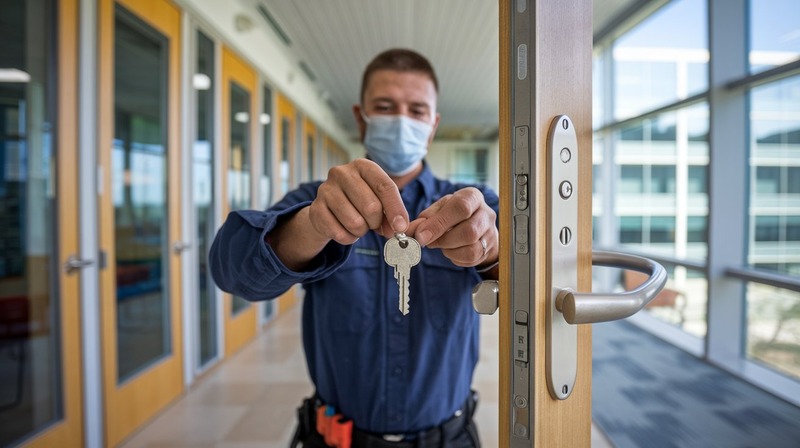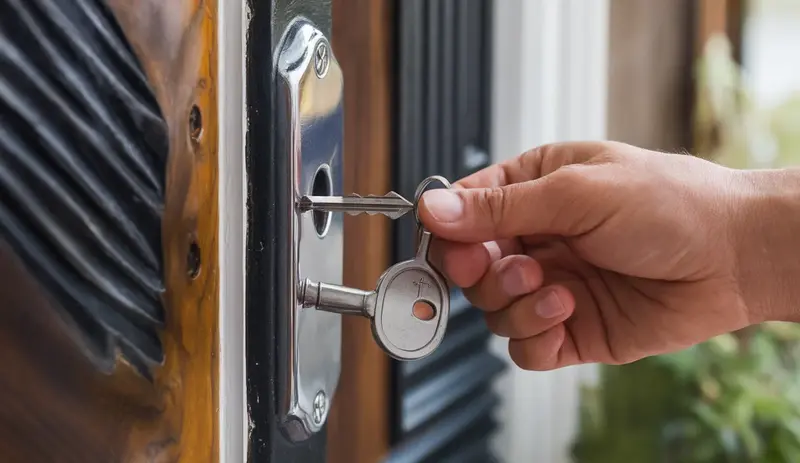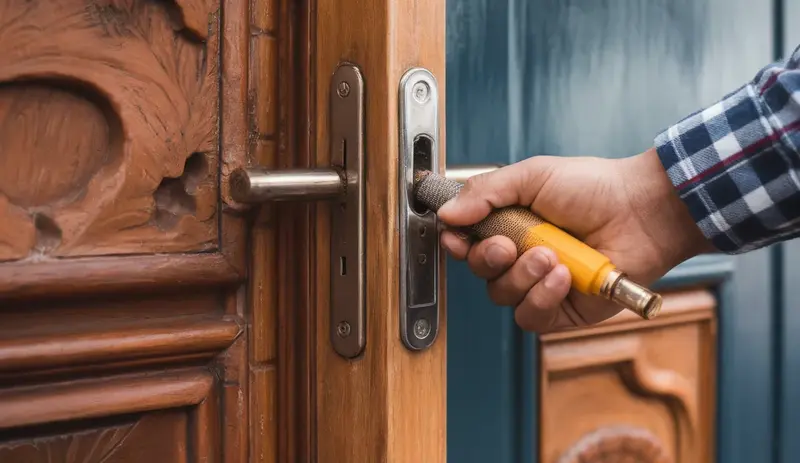
Picture this: You’ve just found out a disgruntled former employee might still have a key to the office. Or maybe you’re switching management and want to make sure nobody from the old team can just waltz in. The first question that pops into your mind? “How much is this going to cost me?”
Most business owners panic about office security, thinking it’ll drain their entire budget. But rekeying doesn’t have to be a financial nightmare. In this guide, we’ll break down exactly what you’ll spend, what impacts the price, and how to make smart choices that keep your workspace secure without breaking the bank.
What Exactly Does “Rekeying” Mean?
Let us simplify rekeying and lay it out in a way that’s really easy to understand. When a business ventures into rekeying a lock, they are really changing the internal parts so that the old keys won’t work anymore. It’s like your lock just got a complete internal renovation, and you’re not paying to replace the whole set of lock hardware. This isn’t the same thing as totally replacing a lock and changing it out for a brand new one. You’re not doing that. You’re keeping the old lock but making it totally incompatible with the old set of keys.
Companies often require rekeying services in various situations: following an employee’s departure; in the wake of a security issue; during a change in management; or when they wish to streamline their access controls by rekeying all the locks so that they operate with a single master key. Think of it as a straightforward way to maintain the security of your key system and your building.
Factors That Affect Rekeying Costs
Rekeying doesn’t come with a standard price. Several key factors influence the final figure. Most obviously, the number of doors matters – a small startup with five doors will pay dramatically less than a multi-floor corporate headquarters. And what about the types of locks? High-security commercial locks cost more to rekey than the standard office door lock. And almost lastly, but not by any means of importance, we must consider location.
Where you are located plays a surprisingly influential role in the pricing of locksmith services. Labor is more costly in metropolitan areas, and that means locksmiths charge more for their work in those same areas. A rekeying job in San Francisco, for instance, could cost upwards of $150, while the same job could run between $80-$100 in a smaller, midwestern city.
And when you consider that it’s not uncommon for commercial spaces to have many more locks and even more complex locking systems than residential spaces, it drives up the cost of rekeying those commercial locks.
Average Price Ranges for Office Rekeying
If you have a small office with 5 to 10 doors, you’re looking at a relatively modest investment to secure those doors. They might run, in total, between $200 and $500, give or take some. If you have a medium-sized office with 10 to 20 doors, you’re likely spending something in the range of $500 to $1,000, all told. And if you have a large corporate space with a lot of doors, and/or an extensive security system already in place? Well, that’s when the price tag can go up to $2,000 or $5,000, or even more, depending on how complex and how big your space is.
Here’s something that’s not common knowledge: the basic cost per door actually decreases as the number of doors increases. For larger jobs, locksmiths often give bulk discounts that make the price per door more economical than for smaller jobs.
DIY vs. Professional Rekeying: What Makes Sense?
Although YouTube tutorials may make rekeying seem simple, it is done best by professional locksmiths who have unmatched expertise. You might save a small sum doing it yourself, but the risks are significant. One tiny mistake and you’re counting on some other part of the system to keep you secure.
Locksmiths who work professionally possess not only technical abilities but also a comprehension of contemporary security standards. They can make wise recommendations for security upgrades, identify potential weak spots in a system, and ensure that all is installed just so. For the majority of businesses, the reassurance that comes from knowing a pro has done the job right is worth far more than any potential savings from a do-it-yourself effort.
Hidden Costs to Watch Out For
In addition to budgeting for the basic rekeying service, businesses must also plan for the possible occurrence of additional expenses. Some lock systems are so intricate that special hardware is necessitated in order to move the rekeying process along smoothly. This is not unlike what happens when locksmithing in the field necessitates the use of a key duplicating machine.
Locksmiths bobbing at street level with bases in hulls of boats have made use of the mobile engine for precision work. Emergency services beyond normal business hours (those locksmiths really are worth their weight in gold when you need them after 5 p.m.) incur premium rates. Some advanced security systems are so far gone that…
How to Save Money on Office Lock Rekeying?
Intelligent businesses can save rekeying costs by planning and executing their plans well. Always obtain several estimates from trustworthy locksmith services. Consider rekeying at times when locksmiths are not very busy, since this might lower the price. If you’re rekeying more than one location, check to see if the locksmith company will give you a discount for work in bulk. Some locksmith services offer plans that help keep the price down for long-term security.
Tip: Cultivate a bond with a reliable locksmith. Consistent upkeep and a pre-existing business rapport can commonly yield more economical rates and swifter assistance during emergencies.
Final Words
Rekeying your office isn’t just about spending money-it’s an investment in your business’s security. By understanding the costs and making informed decisions, you can protect your workspace without emptying your wallet.
Ready to secure your office? Get quotes from local locksmiths and take control of your workspace’s safety today.


